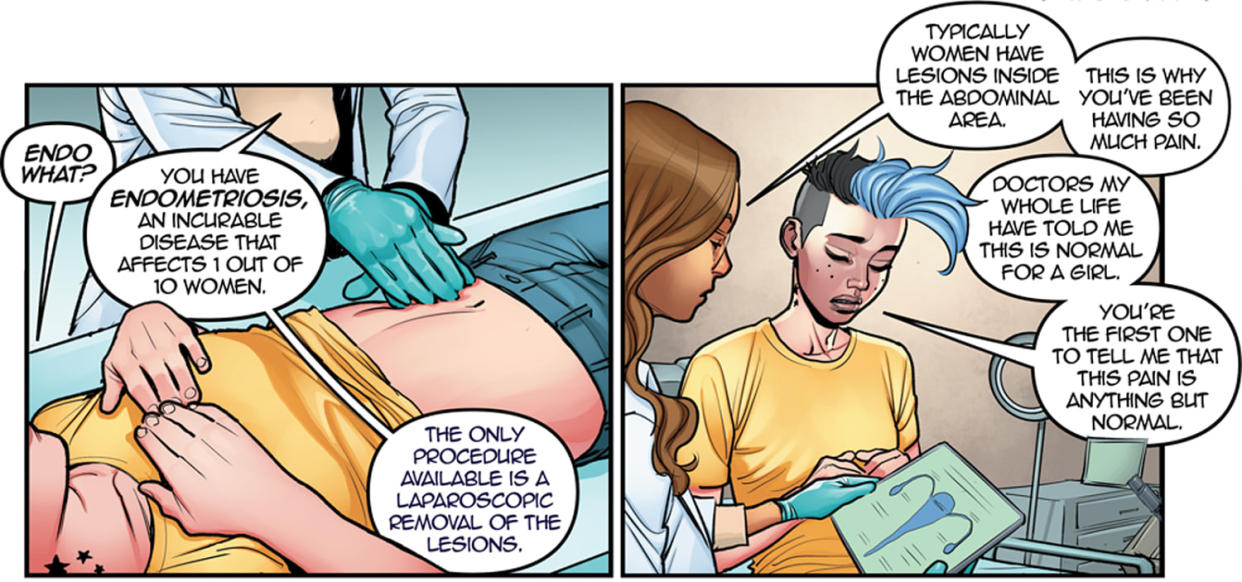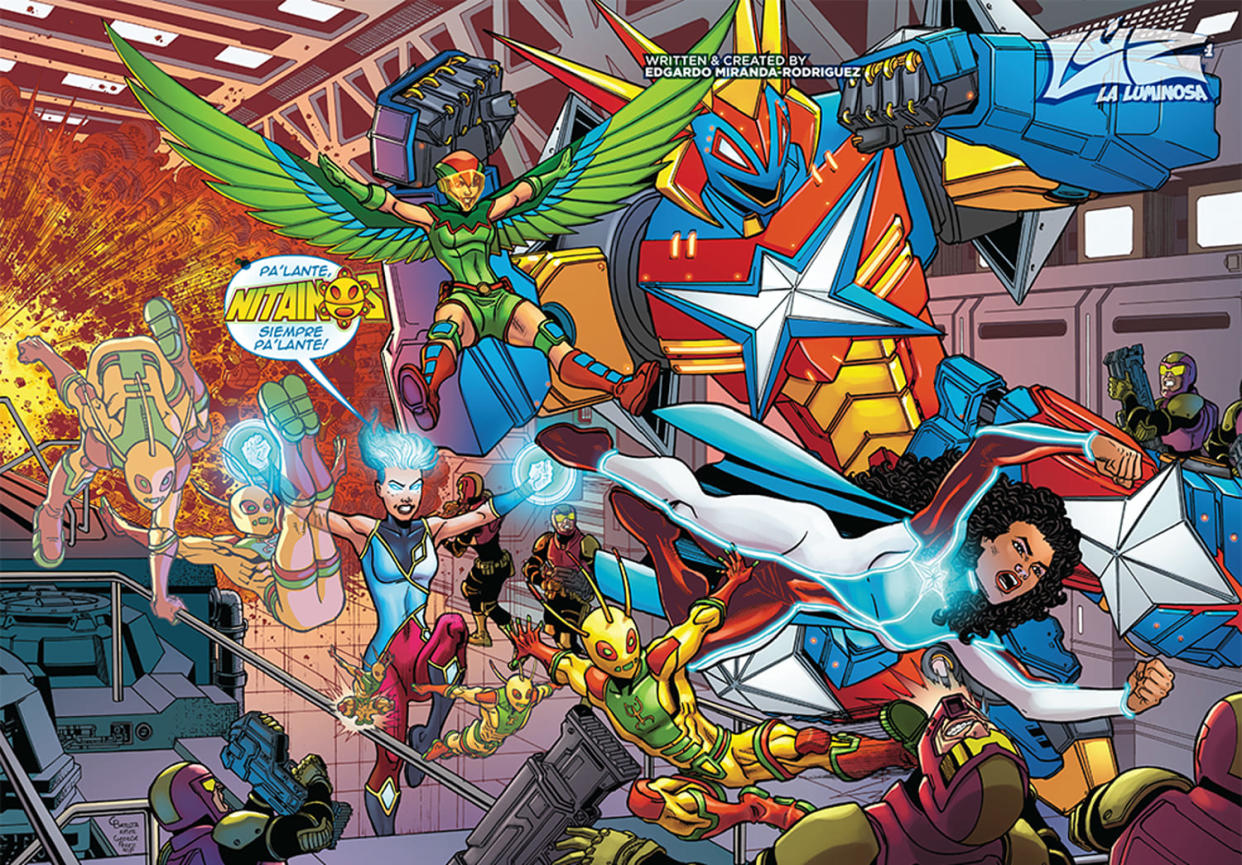A female comic book superhero fights villains — and a painful women's health condition
Chinese Dominican comic book superhero Lúz La Luminosa recently made her first standalone comic book debut to spread awareness about a health condition that affects around 1 in 10 women — and the storyline has garnered a positive reception by fans and activists.
“Lúz La Luminosa” published last month features Lauren “La La” Liu, known as the titular queer, Asian and Latina superhero Lúz La Luminosa in her very own solo comic for the first time. It showcases action-packed fights against supernatural villains alongside her super-powered companions; but as La La Lúz puts it, the biggest villain of all is her struggle with endometriosis, a condition in which tissue similar to what is found in the uterus grows outside it, resulting in pelvic pain and difficulties conceiving.
During a pivotal fight against the villains, the superhero has a painful flare-up and is unable to fight. Her friend and ally, Oro el Coquí Dorado, comes to her aid but is knocked out. Lúz, seeing her friend in danger, muscles through the pain to save the day. The comic ends with La La Lúz getting treated for endometriosis lesions, a procedure that helps patients’ with the pain but is not a permanent cure.
Comic book creator Edgardo Miranda-Rodriguez said that the reception has been “beautifully positive and very intersectional.” Readers who are queer, Asian, Latina or have endometriosis have been elated to find a superhero that represents their identities, he said.

“This story was an opportunity to introduce endometriosis because this is the first story that La La narrates from beginning to end,” Miranda-Rodriguez said. “No one else on the team — not even her best friend — knows that she has endometriosis.”
La La Lúz first debuted as a superhero in 2021 in the third issue of the comic book series “La Borinqueña,” written and published by Miranda-Rodriguez with art by Will Rosado and Christopher Sotomayor. In it, Lúz makes history as the first queer Asian and Latina superhero, coming to the aid of her best friend, a fellow Latina superhero called La Borinqueña.
Miranda-Rodriguez told NBC News that he initially got the idea to write La La as a person who has endometriosis from his wife, Kyung Jeon-Miranda, who also has endometriosis. Jeon-Miranda — who runs their charitable efforts through the La Borinqueña Grant Awards — was an integral part of writing scenes in which La La grappled with endometriosis flare-ups and doctor’s visits.
“Kyung came up with the idea of giving our protagonist Lúz endometriosis because she felt that with our comic books, we have already used the best tools to engage readers with social issues,” he said.
Acclaimed actor Rosario Dawson, who has collaborated with Miranda-Rodriguez on several projects, also has endometriosis and has detailed her struggle with the condition and recently discussed it with Jeon-Miranda to help raise awareness about the condition.

Miranda-Rodriguez said he's hopeful that La La Lúz’s story can help spread awareness of endometriosis and be used as an educational tool to aid new patients’ understanding of the disease. During the Puerto Rico Comic Con on March 29, Rosa Seguí Cordero, a candidate for the Puerto Rico Senate, expressed support for the new comic on social media.
The new comic features an afterword with more information about endometriosis by Idhaliz Flores, a professor at Puerto Rico’s Ponce Health Sciences University who specializes in endometriosis research.
For Miranda, “my hope is that this comic book may find its way into classrooms and possibly even health institutions, clinics, hospitals so that it can be used as a tool to educate young women around endometriosis."
